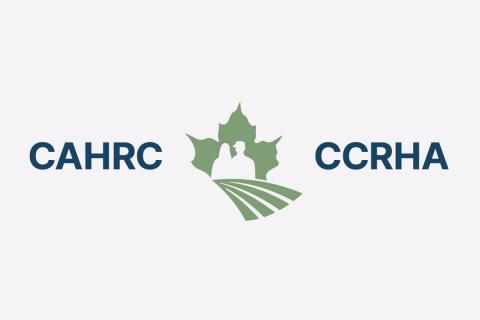Opportunities for attracting non-traditional workers to agriculture and agri-food.
Ottawa, ON - The Canadian Agricultural Human Resource Council (CAHRC) is working to employ new Canadians in the agriculture sector.
"There are limitless opportunities in agriculture and agri-food today," explains Portia MacDonald-Dewhirst, Executive Director of CAHRC. "We are working with our stakeholders through our projects and research to grow the agricultural workforce for Canada including initiatives to employ new Canadians and attract groups currently under-represented in the agricultural workforce."
To facilitate industry dialogue and collaboration on addressing agricultural workforce issues, CAHRC is inviting agriculture leaders, farmers, industry and government officials to attend the ‘Growing the AgriWorkforce Summit' in Winnipeg in March 14-16. For more information on the summit visit www.cahrc-ccrha.ca .
CAHRC's Labour Market Information research has identified a leading barrier to agricultural employment as being employment services agencies that do not consider placing job-seekers in the agricultural sector because the agencies are not familiar with the industry and don't know or understand the skills needed. Other barriers to employment are a lack of transportation in rural areas and language barriers. Over 1,400 industry stakeholders have participated in surveys, interviews, and focus groups to inform this research.
In support of breaking these barriers, a CAHRC-led pilot project is pairing the clientele of the Calgary Catholic Immigrant Society with employers in the area from now through to autumn 2016 to establish improved connections between new Canadians and available jobs in agriculture.
CAHRC also leads the implementation of the Canadian Agriculture and Agri-Food Workforce Action Plan (WAP) which is designed to improve access to a qualified supply of workers. Support for the Plan continues to grow with over 67 Implementation Partners across all sectors and commodities, with 14 Contributing Partners supporting the ongoing research efforts. The WAP is an agriculture and agri-food jobs and growth strategy that is guided by Canada's national Agriculture and Agri-Food Labour Task Force, a strategic advisory group to CAHRC. The WAP identifies the issues and offers solutions to address the critical and pervasive shortage of workers in the agriculture and agri-food sector.
Keystone Agriculture Producers (KAP), the largest farm policy group in Manitoba, is working with CAHRC on foundational research that will provide better agriculture worker training.
"KAP supports the Workforce Action Plan and its recommendation for a streamlined agriculture and agri-food workforce program," said KAP president Dan Mazier. "The plan offers short-term solutions to our labour shortage, including addressing concerns about the Temporary Foreign Worker Program, as well as medium and long-term solutions. I urge the federal government to adopt the recommendations contained in the plan as it develops its policies."
"We are very pleased to support the Canadian Agriculture and Agri-Food Workforce Action Plan. Its comprehensive strategy will help pork producers and processors access the workers they need to be competitive," says Rick Bergmann, Canadian Pork Council Chair. "Working with CAHRC and through many ongoing industry recruitment activities, Canadian producers and processors are doing everything they can to recruit Canadian workers. Our industry is also reaching out to incoming refugees. When Canadians cannot be found, employers need a pathway to permanent residency for our experienced workers through the federal Express Entry Program and through provincial immigration streams. Our trained livestock workers and butchers are too valuable for Canada's food production system to lose."
"About 95 per cent of Canada's seed corn is grown in southern Ontario and it is seasonally intensive work," explains Ron Meulemeester, Chair, Seed Corn Growers of Ontario's Labour Task Force Committee. "Over 4,000 workers are needed in a short two to three week time period for corn detasseling. In order for seed corn growers to meet Canadian Food Inspection Agency's requirements and to avoid devastating losses to seed corn crops, access to seasonal workers is a must - worker shortages are not an option."
